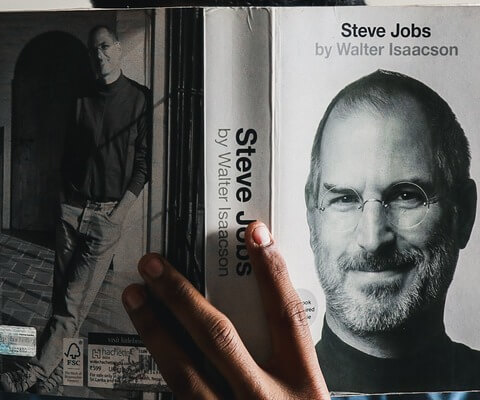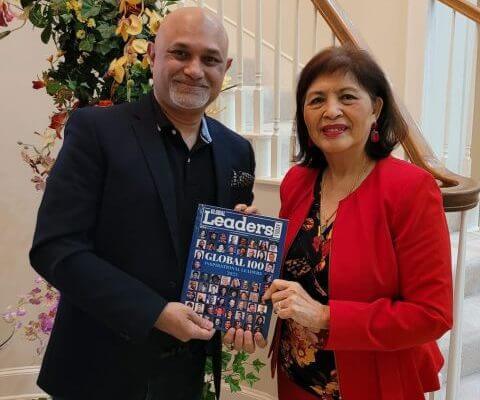- Why Customer Experience is the Cornerstone of Any Successful Business
- Toronto Breaks Ground on Net-Zero Community Centre in North York
- Chinese Livestreamers Rake in $7.65m After Using Interactive Digital Avatar
- Ukraine – The Most Unexpected Yet Attractive Investment Destination?
- HR Leaders to Redeploy 25% of Workforce by 2027 Amid AI Boom
Tag: Leadership in world
The string theory is a fascinating concept in physics that aims to explain the fundamental nature of matter and energy in the universe. It suggests that all particles in the universe are composed of tiny, vibrating strings, each with their unique vibrational pattern, which gives them their unique properties.
From a corporate perspective, string theory can inspire innovation and creativity in the tech industry. Just as the theory suggests that everything in the universe is connected, tech companies can apply this principle to develop interconnected systems and technologies. For example, Apple’s ecosystem of interconnected devices, including iPhones, iPads, and Macs, is based on the principle of connectivity and interdependence, inspired by the string theory.
By understanding the underlying principles that govern the universe, business leaders can develop a shared language and understanding that can bring people from different departments and backgrounds together, leading to better collaboration, productivity, and success.
Zena Hitz, with “Lost in Thought: The Hidden Pleasures of an Intellectual Life,” argues that the pursuit of knowledge and intellectual curiosity is essential for a fulfilling life. Similarly, the string theory teaches us that everything in the universe is interconnected and interdependent.
Similarly, Paul Bloom, in his book “How Pleasure Works: The New Science of Why We Like What We Like,” suggests that our motivations are not just about pleasure but also about a sense of purpose and meaning. Lastly, Durkheim and Bourdieu, two sociologists, argued that our motivations are shaped by our social and cultural environments.
In conclusion, the string theory is a powerful concept that can drive our motivation and focus in life. By understanding the fundamental principles that govern the universe, we can develop a deeper sense of purpose and meaning, explore new ideas, push ourselves to greater heights, create new technologies and innovations, and bridge cultural and social boundaries.
About the Author
Dr. Raul Villamarin Rodriguez is the Vice President of Woxsen University. Dr. Rodríguez is an Adjunct Professor at Universidad del Externado, Colombia, and member of the International Advisory Board at IBS Ranepa, Russian Federation, and a member of the IAB, University of Pécs Faculty of Business and Economics. He is also a member of the Advisory Board at PUCPR, Johannesburg Business School, SA, and Milpark Business School, South Africa, along with PetThinQ Inc., and SpaceBasic, Inc. He is a visiting professor at Uni. del Rosario, and Expert at UNESCO.
Written by Contributing Writer, Allison Jones Thankfully, the conversations we’re having around inclusion and diversity have changed over recent years. Most leaders now understand that having a diverse...
A survey into leadership competency has revealed that only 14% of leaders are influential, despite over 85% being ranked as competent leaders. Created by Judith Germain, the survey data was collected from...
Meeting is a word that tends to be most unwelcome in business. Do you ever feel that all you do all day is attend meetings? Meetings about sales, finances, what type of fridge would suit the team, and my...
If you stopped someone in the street and asked them what a maverick was, they would probably pause a moment, smile and say ‘Tom Cruise in Top Gun’. If you asked them to describe a maverick at work,...
Mai-Lan Trinh is a highly acclaimed and celebrated Real Estate luminary. Her expertise and experience in the industry have earned her international recognition, including the prestigious FIABCI Medal from...
Brett King is a bestselling author and was voted the Innovator of the Year for 2012 by American Banker (Bank Technology News). Since 2010 King has released 5 Globally Bestselling books, including Bank...
Adrian Gore founded Discovery in South Africa in 1992 – with a core purpose ‘to make people healthier and enhance and protect their lives.’ Discovery is now a global financial services...
As the COVID-19 pandemic has shaken the business landscape, organizations are still trying hard to cope with the changes. Walking around the office area is no longer an adequate measure to keep an eye on...
Lex Sokolin is a futurist and entrepreneur working on the next generation of financial services. He is the Head Economist and Global Fintech Co-Head at ConsenSys, a blockchain technology company building...















